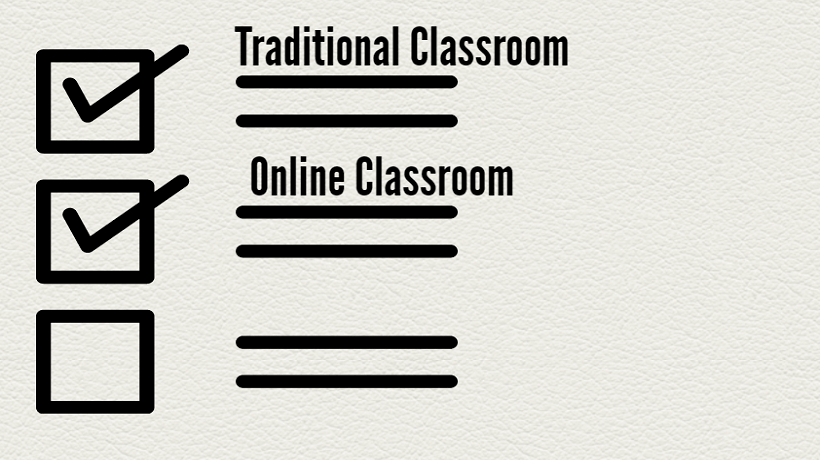eLearning During COVID-19
Every week we had different aspects of reading to focus on, and different topics of discussion posted to the course forum, where we could share our thoughts and theories. My peers were various: people in their twenties and seventies, different nationalities, tastes, social and cultural backgrounds. What brought us together was the love of reading and literature. This variety contributed enormously to our discussions, enriching and ever turning our awareness this way and that as we were presented with all the different ways reading may be approached. After it was all over and we got back to our usual lives—a little changed, perhaps—it got me thinking that had I taken a similar course at a local university, the learning outcome would most likely not have been the same. Online learning, after all, pools together individuals who would otherwise have never exchanged a word right into the same learning space. This is precious and invaluable in the current economy.
I have been an advocate of online learning ever since, and propose that it can be as challenging and stimulating as any regular course, promote the same sense of achievement, and, even if you never get to meet in person, a brilliant opportunity to exchange ideas with others.
Skip to today, in a world that becomes more and more digitized, prompted by individual needs, company limitations, market pressure, and the ongoing pandemic, online education is at an all-time high.
Choosing The Right Online Course For Your Needs
Considering the multitude of offers, different delivery types, structures, and limitations, below you can find brief tips on how to choose the best course for your needs.
1. Self-Paced Vs. Scheduled
Deciding between these two options is one of the three major considerations to take into account when choosing an online course. It is important to check if the course can be followed at your own pace. This will be the best option for those with irregular work hours or who have a busy family schedule, as it can easily fit into your daily or weekly routine. Just be sure to keep a somewhat steady pace so you don't have to keep going back to review what has been dealt with before, eating away at your precious time. If the course follows a set schedule and you have to study a certain amount of hours every week, be prepared to reserve those hours. Just like regular classes, these can easily add up in coursework if you are not diligent.
Course descriptions will likely contain the number of study hours they expect you to reserve for every unit.
2. Peer Interaction
Just because you are alone at the computer does not mean you have to study alone. If you miss having other students to talk to and get bored if the content is directed only at you, consider choosing courses that are structured around peer interaction. These are often in the form of forum discussions, with threads where the lesson's subject is discussed by students and mediated by a tutor. This should be mentioned in the course description area. Some courses—focusing on language and acting, for example—may even offer live classes through video conference rooms.
3. Accreditation And Certification
Now, this is a complex consideration. If you are interested in completing a course with a view to career progression, finding a job, or changing career paths, choosing a course with accreditation and certification is the way to go. This will make it easier for the current or prospective employer to verify your skills when evaluating your application.
Most courses offer certification, usually with a fee attached if the content itself is offered free of charge. If, on the other hand, you are studying for your own interest, a certificate is entirely optional. The general recommendation is to choose an accredited institution, to make sure that what you are learning meets the basic standards set by the government, as well as shielding you from possible future headaches of having to take a similar accredited course to make up for it. You can find out if an institution is accredited by checking the bottom of their website for a link to their accreditation status.
4. Course Fee
Many of today's courses are offered free of charge. It is possible to find free tracks from marketing to Java and Python programming. These may come with certain limitations, such as not offering graded assessments and certificates of completion, or imposing an access expiration date, but the content is free. That being said, it is also possible to find courses in the thousands of dollars or euros. These are, on their part, offered by prestigious universities and learning centers and students have the same privileges as regular campus ones; course quality is also regarded as higher but at the premium price.
Still, on the same subject, some courses offer all materials needed for a successful learning experience, while others don't. In this case, check the requirements list and see how easy it is to acquire the textbook or additional software asked for.
5. Reviews
As with every other product or service, relying solely on the offered description can lead to disappointment and more time invested looking for an alternative afterward. Therefore, every time you find an interesting course, it is strongly advised to look online for reviews. A quick Google search may provide you with real experience tales from others who have taken the same course. Beware of reviews posted directly on course descriptions of smaller platforms though, as these can easily be manipulated.
6. Institution
Different websites and institutions cater to different audiences. Be skeptical if the same institution is offering courses on game theory and crystal healing. These usually promote cheap courses, but the practice is a clear indication that instead of focusing on the course content offered, the platform is interested in attracting the maximum number of students to make a profit. Again, it does not hurt to check their reputation online.
In summary, in order to choose a course you need to decide between:
- Following a set schedule or your own pace;
- Interacting with other students or not;
- Pursuing a certificate/degree path or learning just for the skills;
- Low, mid-range, or premium course fees;
- Offers based on reviews;
- Institutions according to reputation.
Happy eLearning journey!









